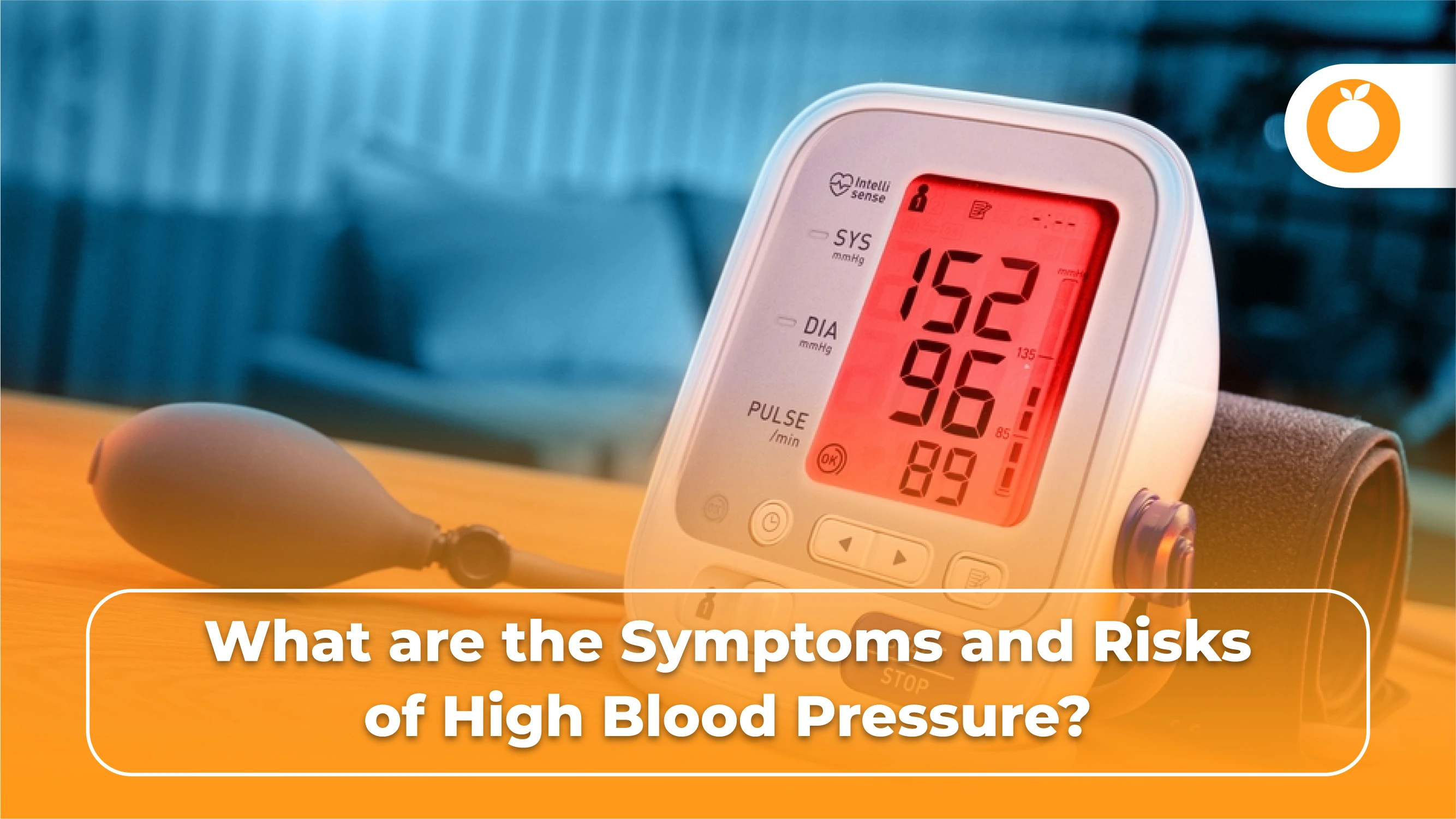Search for tests or checkups
SupportWhat Are the Symptoms and Risks of High Blood Pressure?

High blood pressure, or hypertension, often develops quietly without obvious warning signs. Because it can progress unnoticed, regular monitoring is essential. Understanding what hypertension is, its possible symptoms, and long-term risks helps you take proactive steps to protect your heart, brain, kidneys, and overall health.
What Is High Blood Pressure?
Blood pressure is the force of blood pushing against artery walls. It is recorded as two numbers in millimeters of mercury (mmHg):
- Systolic: pressure when the heart contracts
- Diastolic: pressure when the heart relaxes
A normal reading is typically less than 120/80 mmHg. Consistently higher levels may indicate hypertension.
Symptoms of High Blood Pressure
The Silent Nature of Hypertension
Most people with high blood pressure have no symptoms at all. This is why regular screening is so important, many live with elevated levels without realizing it.
When Symptoms Do Appear
Symptoms usually occur only when blood pressure reaches very high levels, often above 180/120 mmHg. Possible signs can include:
- Headaches
- Shortness of breath
- Nosebleeds
- Fatigue or confusion
- Vision changes
- Chest discomfort or palpitations
- Dizziness or nausea
These signs are not exclusive to hypertension, but if they appear with very high blood pressure, urgent medical evaluation is advised.
Risks of Uncontrolled High Blood Pressure
If left unmanaged, hypertension can increase the risk of several conditions:
- Heart disease: Damaged artery walls may lead to plaque buildup, raising the risk of heart attacks, angina, or heart failure.
- Stroke: Weakened blood vessels in the brain increase the chance of rupture or blockage.
- Kidney disease: Impaired kidney function may develop over time.
- Eye complications: Damage to eye vessels can cause vision problems.
- Metabolic syndrome: Hypertension often appears alongside obesity, diabetes, and cholesterol imbalance.
- Cognitive decline: Reduced blood flow to the brain over time may affect memory and increase dementia risk.
Who Is at Risk?
High blood pressure can affect anyone, but risk is higher in people who:
- Are over 40
- Have a family history of hypertension
- Are overweight or inactive
- Eat a diet high in salt or processed foods
- Smoke or consume alcohol excessively
- Live with diabetes or kidney disease
- Experience ongoing stress
Also Read: Importance of Monitoring Blood Pressure
Preventive Steps and Management
Hypertension can be managed with lifestyle changes and, when needed, medication. Key steps include:
- Reducing salt intake
- Eating a diet rich in fruits and vegetables
- Exercising regularly
- Limiting alcohol and quitting smoking
- Managing stress with healthy routines
- Following prescribed treatments
- Checking blood pressure regularly
These measures help maintain healthy levels and lower long-term risk.
Key Takeaway
High blood pressure often develops silently, but regular monitoring and proactive care can make a big difference. With the right lifestyle choices and timely medical support, risks can be reduced significantly.
For convenient preventive care, Orange Health Labs offers a range of health checkup packages and blood tests, with home sample collection and accurate, doctor-verified reports delivered in just 6 hours. Staying proactive makes it simpler to manage blood pressure and maintain overall wellness.

Why Gluten Allergies Are on the Rise?

How Can You Find Out If Someone Has Malaria? Key Tests Explained
